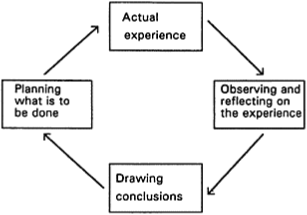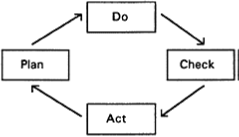Quality Learning
Introduction:
Learning can be defined as a process in which individuals can change their attitude to adopt a continuous development of basic knowledge and skills in pursuit of total professionalism.
CONTINUOUS LEARNING:
There is a common misconception that learning in relation to working life at the professional level ceases when full-time education comes to an end. This may be at the first degree, masters or doctoral levels. The reality could not be further removed from this.
There are a variety of learning approaches but the major ones include:
1. Studying for examinations for professional membership, e.g. quality management;
2. Part-time study for masters and doctoral degrees by study and research, e.g. MSc
TQM, MBA, MPhil and PhD in Quality;
3. Learning at work.
Training in the workplace can follow many patterns: it can be ad hoc and uncoordinated with much of the responsibility put on the individual or it can be planned with some assessment of efficacy.
COMMON LEARNING: 
- The establishing of this learning cycle as a model of good practice for effective learning is the focus.
- There are many issues relating to the facilitation/enabling of this learning cycle to be established in an organization but we must first look at how a start may be made.
- If real learning is to be achieved then all stages of this cycle must be experienced
EFFECTIVE LEARNING:
There is an obvious need to ensure effective learning. If learning is not treated seriously then there will be adverse repercussions for the organization concerned. An effective learning strategy is likely to encompass the following:
1. Understand how and why people learn;
2. Promote a healthy learning environment;
3. Identify individual’s learning needs;
4. Prepare a learning plan with agreed objectives;
5. Promote learning opportunities;
6. Evaluate learning outcomes.
QUALITY LEARNING: 
If people are to really learn then each stage of the cycle must be travelled. There are many other factors involved in this process.
Within an organization there may be many equivalent cycles for areas of development.
Here each cycle needs to be complete and unbroken for effective development to be possible.
In general, quality learning is a continuous process that can be broken anywhere in the learning systems of supply and customer service.
LEARNING PLAN:
Before a plan can realistically be drawn up both the learning needs of an individual and the desired learning outcomes for an individual need to be considered. Learning outcomes define what (which tasks) an individual will be able to perform and how well they will be capable of performing these tasks as a result of the learning process.